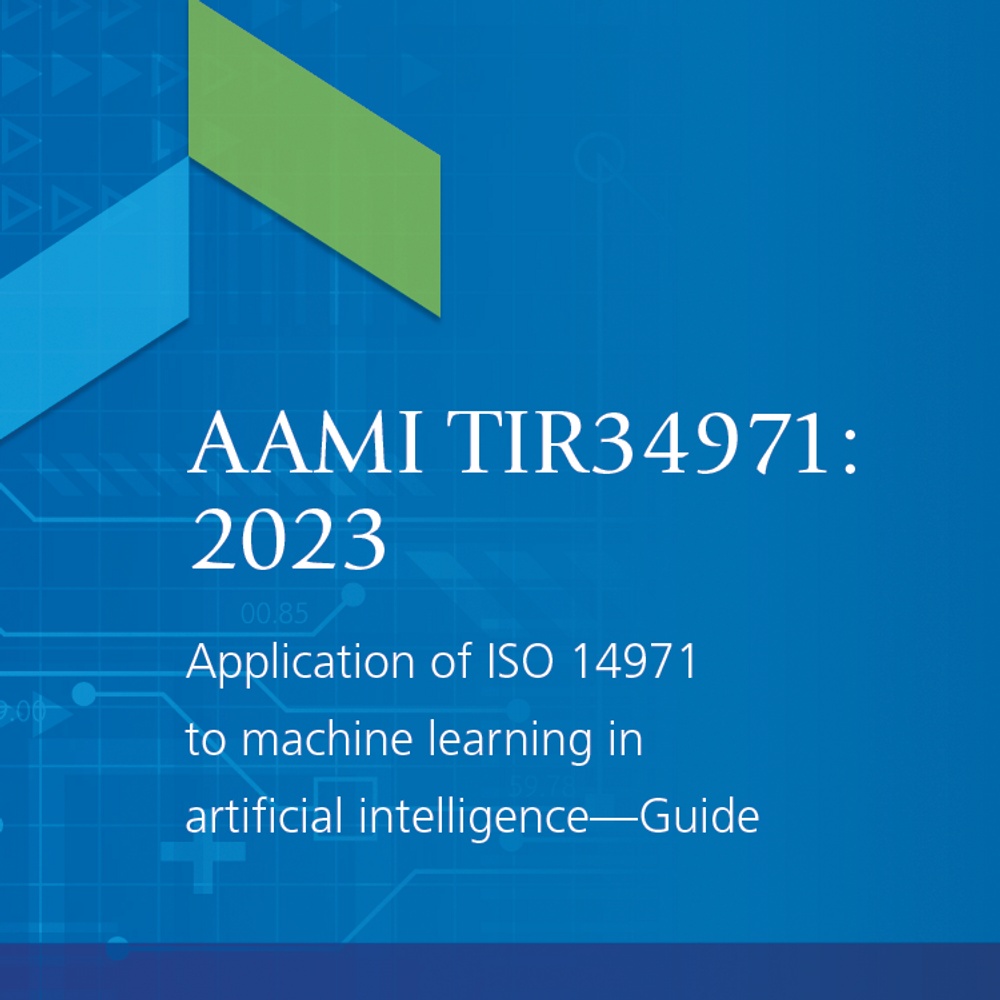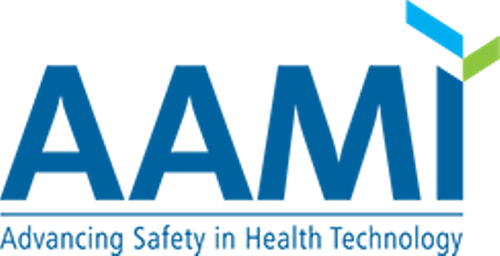AAMI, BSI Join Forces to Publish Guidance on Artificial Intelligence

AAMI and the British Standards Institution (BSI) have jointly published guidance documents on performing risk management for machine learning (ML) or artificial intelligence (AI) incorporating medical devices.
AAMI Technical Information Report (TIR)34971:2023, Application of ISO 14971 to machine learning in artificial intelligence – Guide, derives from a 2022 AAMI consensus report (CR). The U.S. Food and Drug Administration recognized the CR as a guidance document “appropriate for meeting requirements for medical devices under the Federal Food, Drug, and Cosmetic Act.” Developed in collaboration with BSI, the CR was the first AI-related guidance to receive this level of recognition from the Agency.
The British Standard is designated as BS/AAMI 34971:2023, Application of ISO 14971 to machine learning in artificial intelligence — Guide.
“The key difference about the TIR is that we’re doing it jointly with BSI,” said Hae Choe, principal director of standards at AAMI. “It is a dual-logo document. The documents are a little different because BSI doesn’t have technical information reports. They’re publishing theirs as a British Standard.”
Notably, the content of the TIR is substantively the same as the CR content, with only minor spelling and formatting differences between the U.S. and British versions. “The technical content is the same,” Choe said. But the TIR and Standard designations carry more weight—and the British Standard will extend the reach of the guidance.
To develop the CR and TIR, AAMI’s Artificial Intelligence Committee piggybacked on ISO 14971:2019, Medical Devices—Application of risk management to medical devices, and the AAMI/ANSI/ISO 14971:2019, which is the US adoption of the standard. This widely used standard details how manufacturers can implement the risk management process of assessing and mitigating potential risks to protect the health and safety of patients as well as data and system security.
Rather than reinvent the wheel, the AAMI Artificial Intelligence Committee applied the standard risk management process to the elevated or unique safety-related vulnerabilities and risks of AI- and ML-enabled medical devices, including:
- Data management
- Bias
- Data storage, security, and privacy
- Overtrust
- Adaptive systems
“The risk management process is the same, but there are new ways to fail, different concerns, and different risk controls to consider,” said Pat Baird, senior regulatory specialist at Philips and co-chair of the AAMI Artificial Intelligence Committee, in AAMI’s inaugural Medical Device Safety in Focus report, Artificial intelligence: The Trust Issue. “Recognize the fact that AI systems, data, and clouds are going to change and that is outside your control. Plan for it. Don’t wait until something bad happens and then try to figure out what you’re going to do about that. Have the infrastructure and mechanisms in place.”
In the near future, AAMI and BSI are planning to propose TIR34971 as in international standard through International Organization for Standardization (ISO)Technical Committee (TC) 210, Quality management and corresponding general aspects for products with a health purpose including medical devices, and IEC (International Electrotechnical Commission) Subcommittee (SC) 62A/Common aspects of medical equipment, software, and systems.
About AAMI
AAMI (www.aami.org) is a nonprofit organization founded in 1967. It is a diverse community of more than 10,000 healthcare technology professionals united by one important mission—supporting the healthcare community in the development, management, and use of safe and effective health technology. AAMI is the primary source of consensus standards, both national and international, for the medical device industry, as well as practical information, support, and guidance for health technology and sterilization professionals.
Contacts
